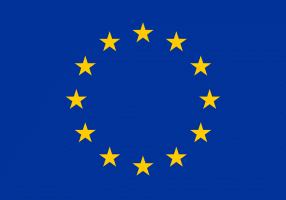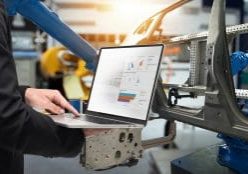Digital and energy revolutions impact all sectors, and especially transportation with at its core, electric mobility. According to Bloomberg Energy Finance, by 2025, 50% of all bus around the world will be electric. New legislations are setting major objectives: stimulating the replacement of current fleets with green and zero-emissions vehicles to improve their impact on environment for instance.
However, many challenges appear for fleet operators, as the daily management and operation of those vehicles are drastically different: evolution of the autonomy and performance through time, warranty, maintenance, cost and charging, among others. Electricity system operators need to build greater flexibility into the system to shift towards sustainable electric mobility while maintaining economic viability.
Leveraging digitalization to support electric mobility
At METRON, we believe that digitalization is part of the solution to address electric mobility challenges, as it allows:
- a full visibility on the vehicle and its ecosystem (grid, charging stations, planning, weather, energy markets, energy contracts, passengers flows…)
- a deep analysis of the assets’ performance (enabling for example the optimization of the affectation of vehicles on the lines)
- an anticipation of the assets’ behavior, providing key insights for their real-time management and maintenance.
That is why we created an energy intelligence platform that monitors and optimizes the operation and charging of electric, hybrid, gas and hydrogen fleets. By analyzing all the data coming from the vehicles and their ecosystem (an electric bus can provide in average 20 millions of data points per day: speed of the bus, kilometers driven, weight, SoC, voltage, charging cycles, battery temperature, etc. ) our AI-powered solution provides valuable insights to fleet operators for the smart management, smart maintenance and smart charging of their vehicles, while respecting operational constraints (planning), technical constraints (batteries lifecycle), grid constraints (smoothed load curve) and financial constraints (energy cost linked with the contract).
Data collection from the vehicles and their ecosystem is the first step. Our solution will then cross the data with the expertise of METRON's energy engineers on battery operation, energy contracts, etc. to create for instance:
- dynamic models to predict energy consumption integrating all influential factors
- a smart sequencing of the fleet charging in the more efficient way and at the lowest cost
- dynamic models of the batteries and their behaviors to detect any drift of consumption or abnormal behavior and anticipate maintenance actions.
Focus on smart charging
METRON considers electric vehicles as a relevant decentralized energy resource, providing a new controllable electricity demand, storage capacity and electricity supply when fully integrated with grid edge technologies and smart grids.
Smart charging is a way to create more flexibility in the energy system, improving stability and optimizing peak-capacity investments, amplified through the aggregation of multiple vehicles and higher control of load profiles. It is also an opportunity for the fleet operator to reduce charging costs (i.e with dynamic pricing by charging the fleet when energy prices are low), and generate new revenue streams, by providing ancillary services to energy markets.
A new paradigm: Mobility as a Service
Digital solutions allow to improve daily efficiency of the key players and facilitate adoption by all transport professionals. Digitalization has accelerated the trend towards a sharing economy with more flexible and shared transport modes. This change of paradigm, from transport to service, will lead to a diversity of transport options, and the adaptation to passenger’s needs, making mobility options more diverse and less costly in order to achieve sustainable mobility.













